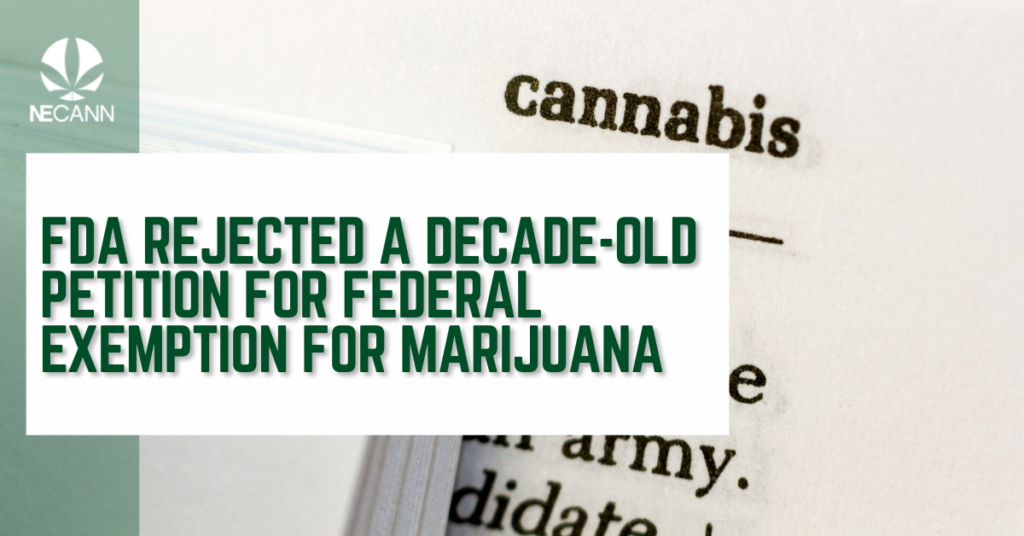A petition to exempt bulk marijuana and cannabis tinctures from regulated oversight under a longstanding federal regulation has been rejected by the Food and Drug Administration (FDA) more than a decade after it was filed.
The FDA received a request from a California doctor and attorney in September 2011 asking for permission to market bulk marijuana and tinctures without first submitting a “new drug” registration, as required by the federal Food, Drug, and Cosmetic Act (FDAC).
Petitioners requested a hearing so that the FDA can decide whether or not to grant them an exemption because cannabis was actively marketed and sold in the United States in the early 20th century, as is covered by the “grandfather clause” in FDAC that exempts drugs made before 1938.
More than 11 years have passed since the petition was initially submitted before FDA finally responded last week by denying it. In a nine-page answer, the agency gave a statutory reason for why the request was denied, which is a rather lengthy delay.
In a recent article, Attorney William McPike, who filed the petition alongside Dr. Beverly Mikuriya, expressed “astonishment” at the lengthy delay in receiving a response from the agency.
“I believed they forgot about us,” he remarked.
McPike said he and Mikuriya offered a “strong case” with the petition, but he has no intention of appealing the denial because he believes the federal government would reschedule or deschedule marijuana soon regardless.
In light of President Joe Biden’s directive for a multi-agency review of cannabis’s Schedule, I classification under the Controlled Substances Act, the FDA’s decision on the petition comes as the agency works to conduct a scientific evaluation of the substance.
The Food and Drug Administration’s former acting commissioner, now principal deputy commissioner Janet Woodcock, recently stated that the FDA is looking into “any flexibilities we might have” in regards to the federal review, which she called a “very high priority.”
She did say that the Drug Enforcement Administration (DEA) “had the final word” on any scheduling decision, despite the fact that the Food and Drug Administration (FDA) will be in charge of the scientific and medical study of cannabis. Even conducting scientific research on marijuana is “extremely, very difficult,” she said, due to its existing restrictive Schedule I categorization.
Stay up-to-date with the latest cannabis news by subscribing to NECANN.




